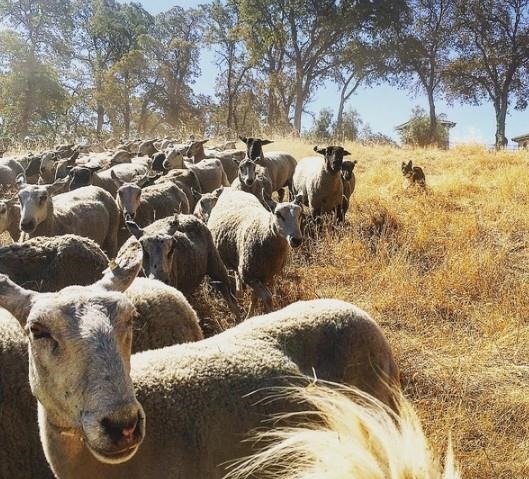By Dan Macon
If you look back far enough in the histories of most foothill cattle operations, you'll find... SHEEP! Believe it or not, many long-time cattle operations also had sheep at one time. And today, there's increased interest in using multi-species grazing as a risk management and diversification tool!
If you're interested in learning more about managing both sheep and cattle on rangeland or pasture, sign up for the Sierra Foothills Cattle & Sheep Grazing School, July 14-15, 2022, in Auburn, California! This two-day school will include information - and hands-on experience - in grazing planning, estimating carrying capacity, fencing systems, stockmanship and husbandry practices, cattle and sheep nutrition, and economics! Our instructors include Dan Macon (UCCE Livestock and Natural Resources Advisor), Joe Fischer (Bruin Ranch), and Ryan Mahoney (R. Emigh Livestock). Every student will have an opportunity to graze both sheep and cattle!
Tuition for the 2-day program is $200, which includes meals and course materials. Producer scholarships are available through Sierra Harvest.
For more information, contact me at dmacon@ucanr.edu or (530) 889-7385. Let's get out there and graze!

Source : ucanr.edu